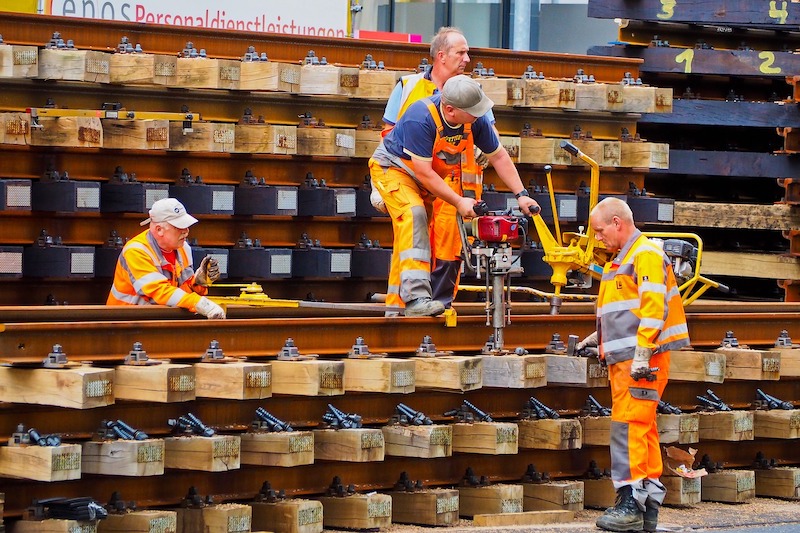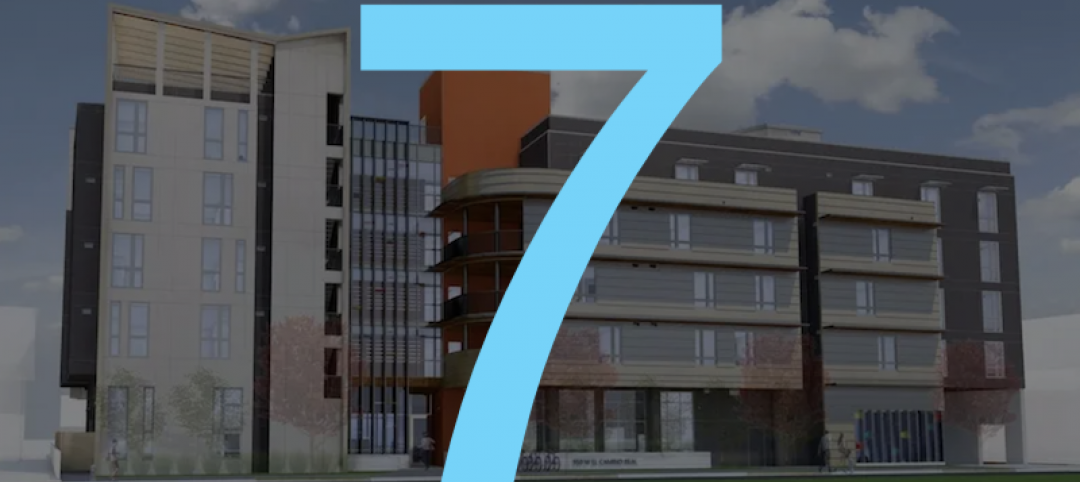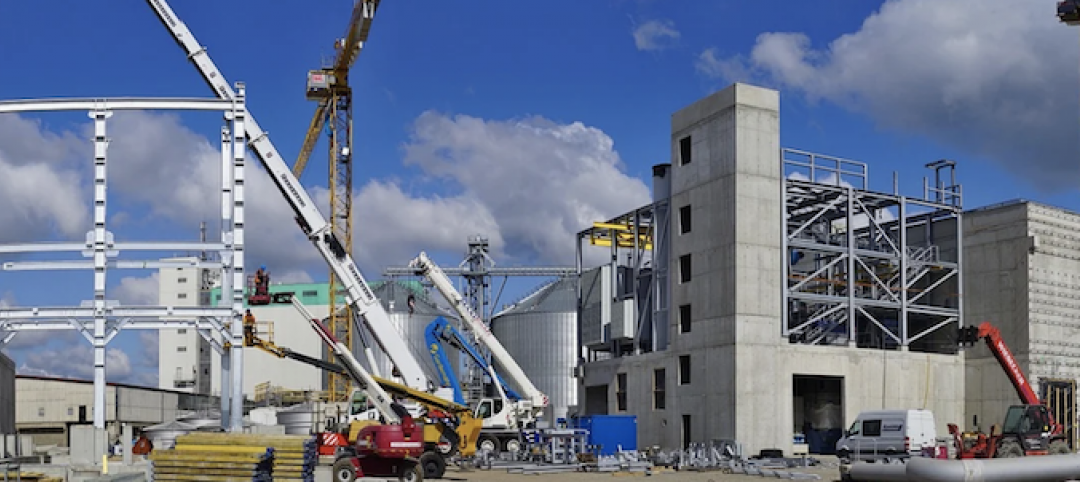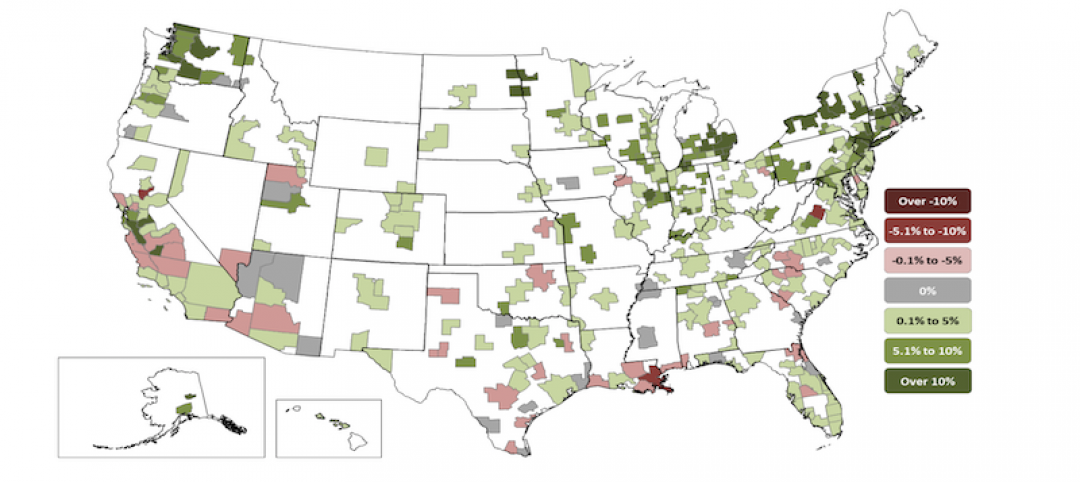Steep monthly declines in public and private nonresidential construction spending offset a surge in homebuilding in July, while industry employment decreased compared to July 2019 levels in two-thirds of the nation’s metro areas, according to an analysis by the Associated General Contractors of America of government data released today. Association officials said many commercial construction firms were likely to continue shedding jobs without needed federal coronavirus relief measures.
“The dichotomy between slumping nonresidential projects—both public and private—and robust homebuilding seems sure to widen as the pandemic continues to devastate state and local finances and much of the private sector,” said Ken Simonson, the association’s chief economist. “Without new federal investments in infrastructure and other measures to boost demand for nonresidential construction, contractors will be forced to let more workers go.”
Construction spending in July totaled $1.36 trillion at a seasonally adjusted annual rate, a gain of 0.1% from June. A 1.2% drop in nonresidential spending nearly canceled out a 2.1% jump in residential spending, which was boosted by growth in both single-family (3.1%) and multifamily construction (4.9%).
Public construction spending decreased by 1.3%, dragged down by a 3.1% drop in highway and street construction spending and a 3.0% decline in educational construction spending, the two largest public segments. The next-largest segment, transportation facilities, also contracted, by 1.6 percent.
Private nonresidential construction spending slid 1.0% from June to July. The largest segment, power construction, dipped 0.1%. Among other large private spending categories, commercial construction—comprising retail, warehouse and farm structures—slumped 3.2%, while manufacturing construction rose 0.2% and office construction fell 0.7%.
Construction employment declined from July 2019 to July 2020 in 238, or 66%, out of 358 metro areas, increased in 90 areas (25%) and held steady in 30. New York City lost the most construction jobs (-26,500, -16%), while the steepest percentage loss occurred in Brockton-Bridgewater-Easton, Mass. (-36%, -2,100 jobs). Baltimore-Columbia-Towson, Md. added the most construction jobs over the year (4,800, 6%), while Walla Walla, Wash. had the largest percentage gain (25%, 300 jobs).
Association officials said that in addition to the new spending and metro employment data, the association is releasing the results of its annual workforce survey tomorrow that will underscore the need for new federal recovery measures. The construction officials called on Congress and the Trump administration to enact new infrastructure investments, pass a one-year extension to the current surface transportation law with additional transportation construction funding and enact liability reforms to shied firms that are protecting workers from the coronavirus from needless lawsuits.
“Without new federal relief measures, the industry’s limited recovery will likely be short lived,” said Stephen E. Sandherr, the association’s chief executive officer. “Congress and the President should be taking advantage of current market conditions to rebuild our infrastructure, restore lost jobs and reinvigorate the economy.”
View the metro employment data, rankings, highs and lows, and top 10.
Related Stories
Market Data | Aug 5, 2020
6 must reads for the AEC industry today: August 5, 2020
San Jose's new tallest tower and Virginia is the first state to adopt COVID-19 worker safety rules.
Market Data | Aug 4, 2020
7 must reads for the AEC industry today: August 4, 2020
Construction spending decreases for fourth consecutive month and 100% affordable housing development breaks ground in Mountain View.
Market Data | Aug 3, 2020
Construction spending decreases for fourth consecutive month in June
Association officials warn further contraction is likely unless federal government enacts prompt, major investment in infrastructure as state and local governments face deficits.
Market Data | Aug 3, 2020
6 must reads for the AEC industry today: August 3, 2020
The future is a number game for retail and restaurants and 5 reasons universities are renovating student housing.
Market Data | Jul 31, 2020
5 must reads for the AEC industry today: July 31, 2020
Vegas's newest resort and casino is packed with contactless technology and Mariott, Hilton, and IHG dominate the U.S. hotel construction pipeline.
Market Data | Jul 30, 2020
Marriott, Hilton, and IHG continue to dominate the U.S. hotel construction pipeline at Q2’20 close
Hilton’s Home2 Suites and IHG’s Holiday Inn Express continue to be the most prominent brands in the U.S. pipeline.
Market Data | Jul 30, 2020
7 must reads for the AEC industry today: July 30, 2020
Millennium Tower finally has a fix and construction costs decrease for the first time in 10 years.
Market Data | Jul 29, 2020
62% of metros shed construction jobs from June 2019 to June 2020 as Association calls for new infrastructure funding, other relief steps
New York City and Brockton-Bridgewater-Easton, Mass. have worst 12-month losses, while Austin and Walla Walla, Wash. top job gainers.
Market Data | Jul 29, 2020
6 must reads for the AEC industry today: July 29, 2020
The world's first net-zero airport and California utility adopts climate emergency declaration.
Market Data | Jul 28, 2020
For the fourth consecutive quarter, Los Angeles leads the U.S. hotel construction pipeline at the close of Q2’ 20
New York City continues to have the greatest number of projects under construction, with 106 projects/18,354 rooms.

















